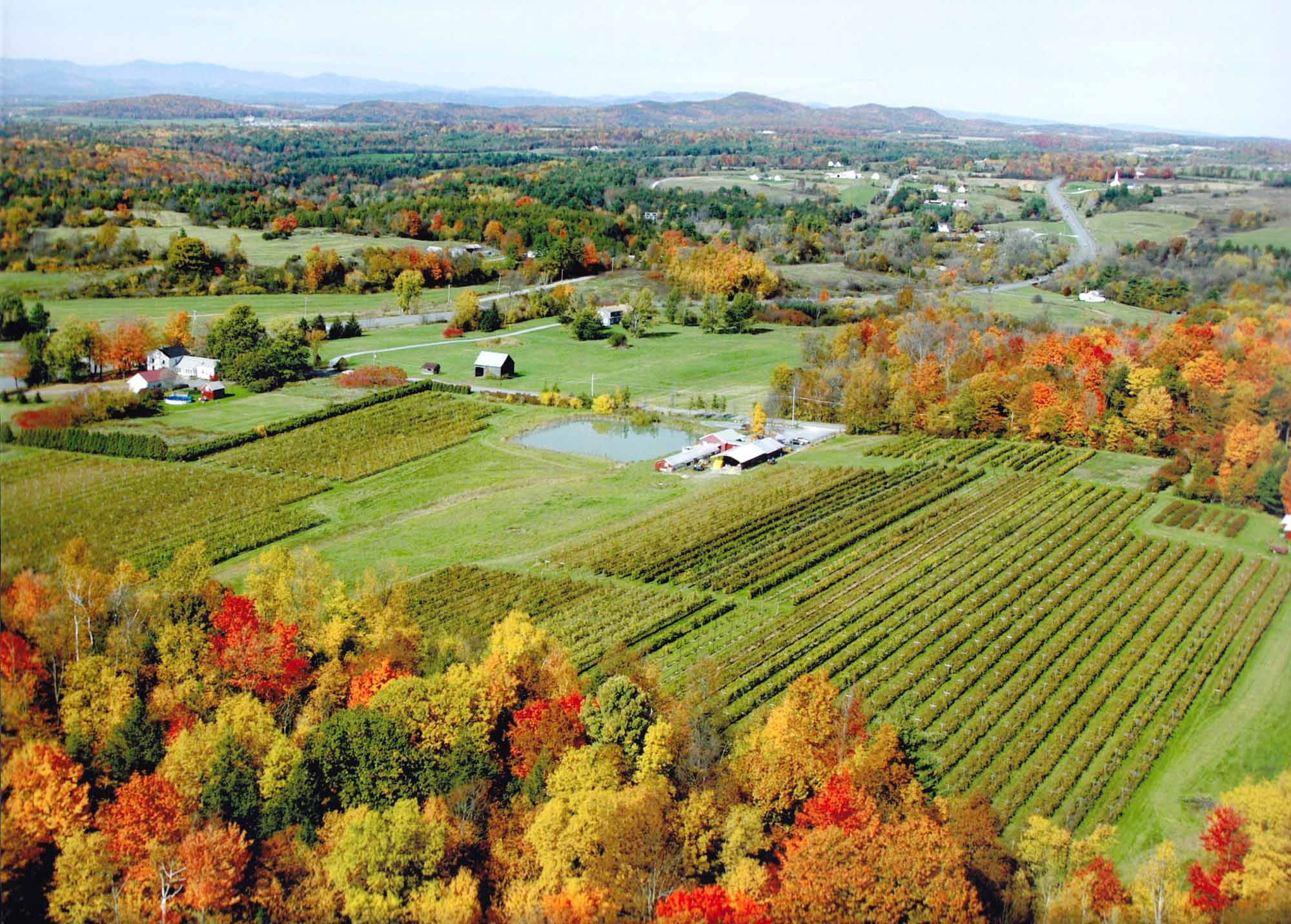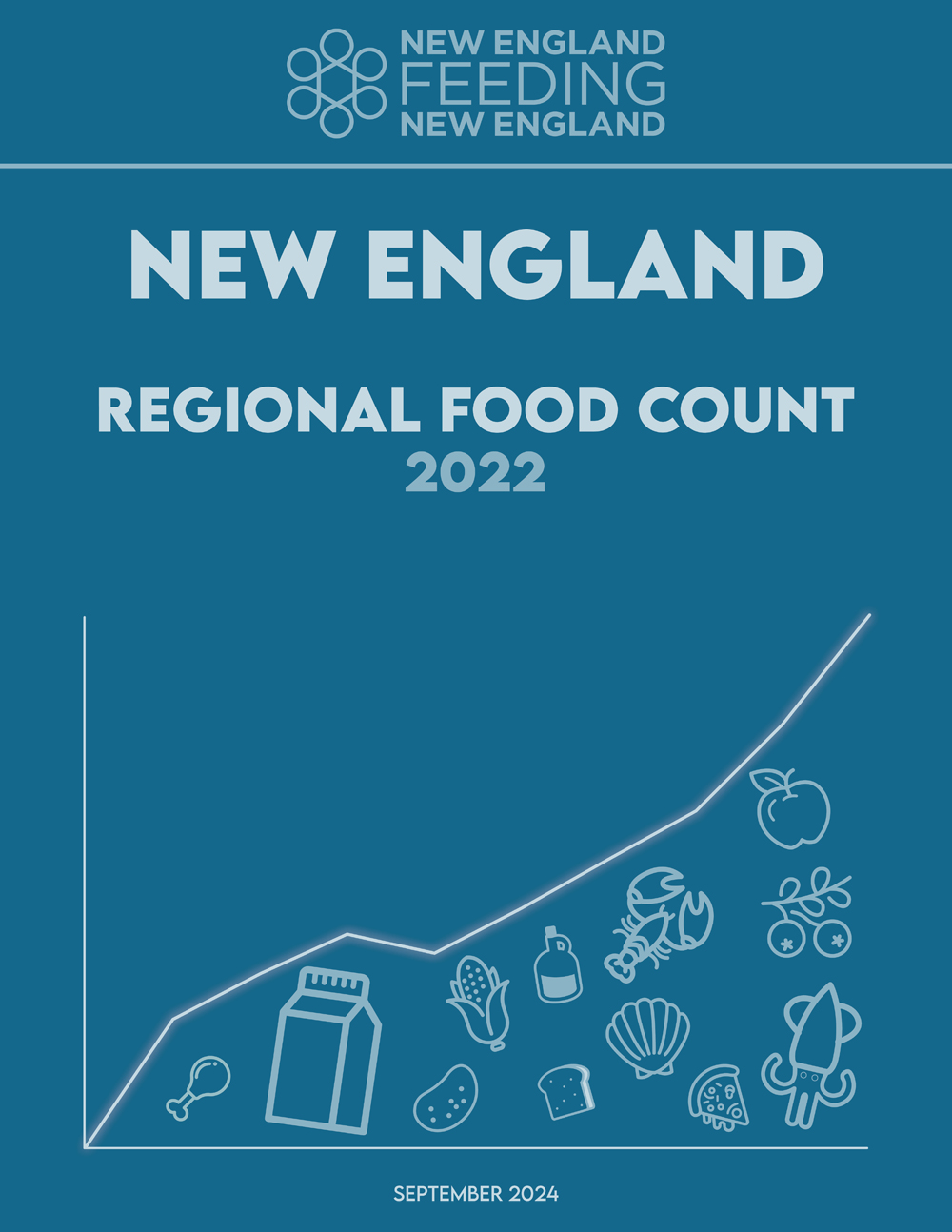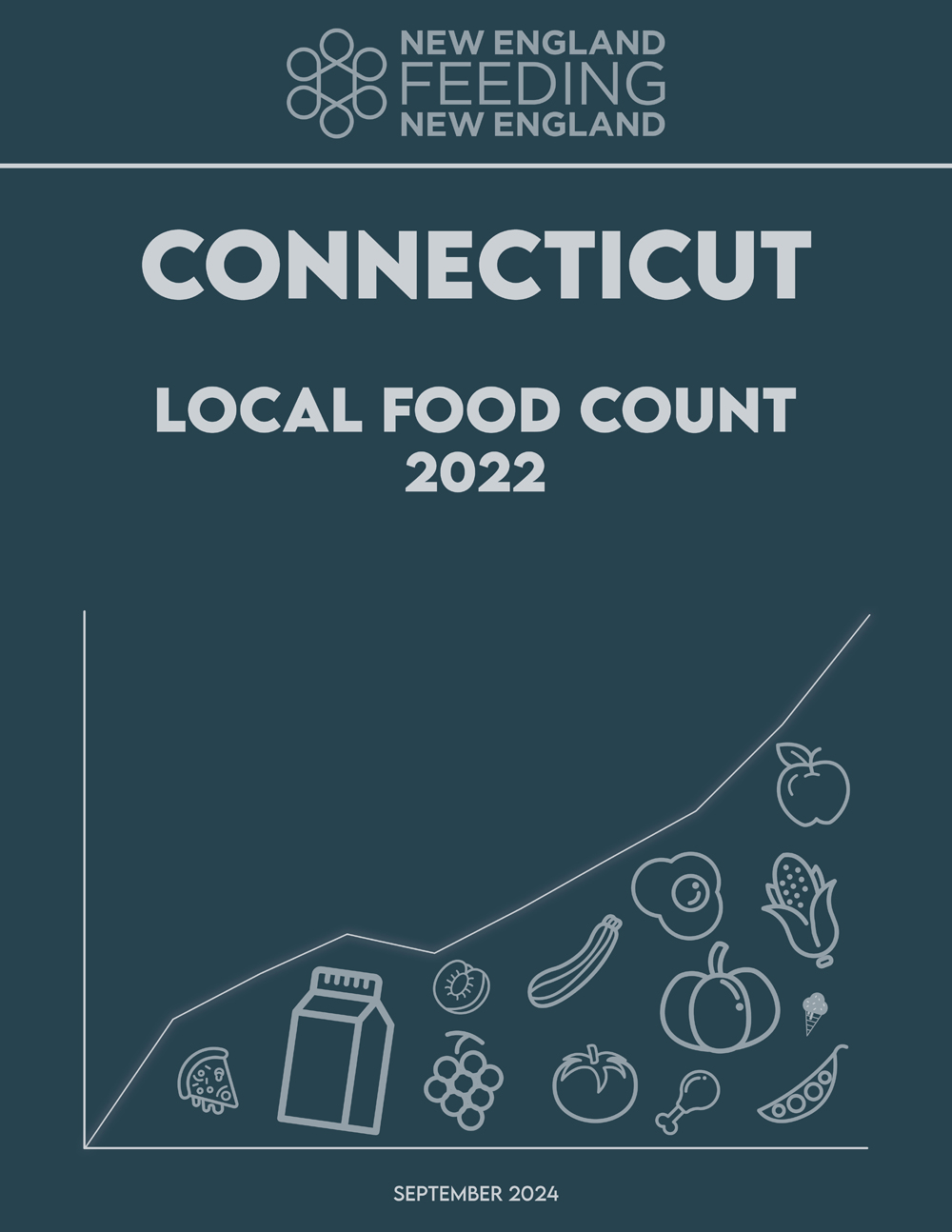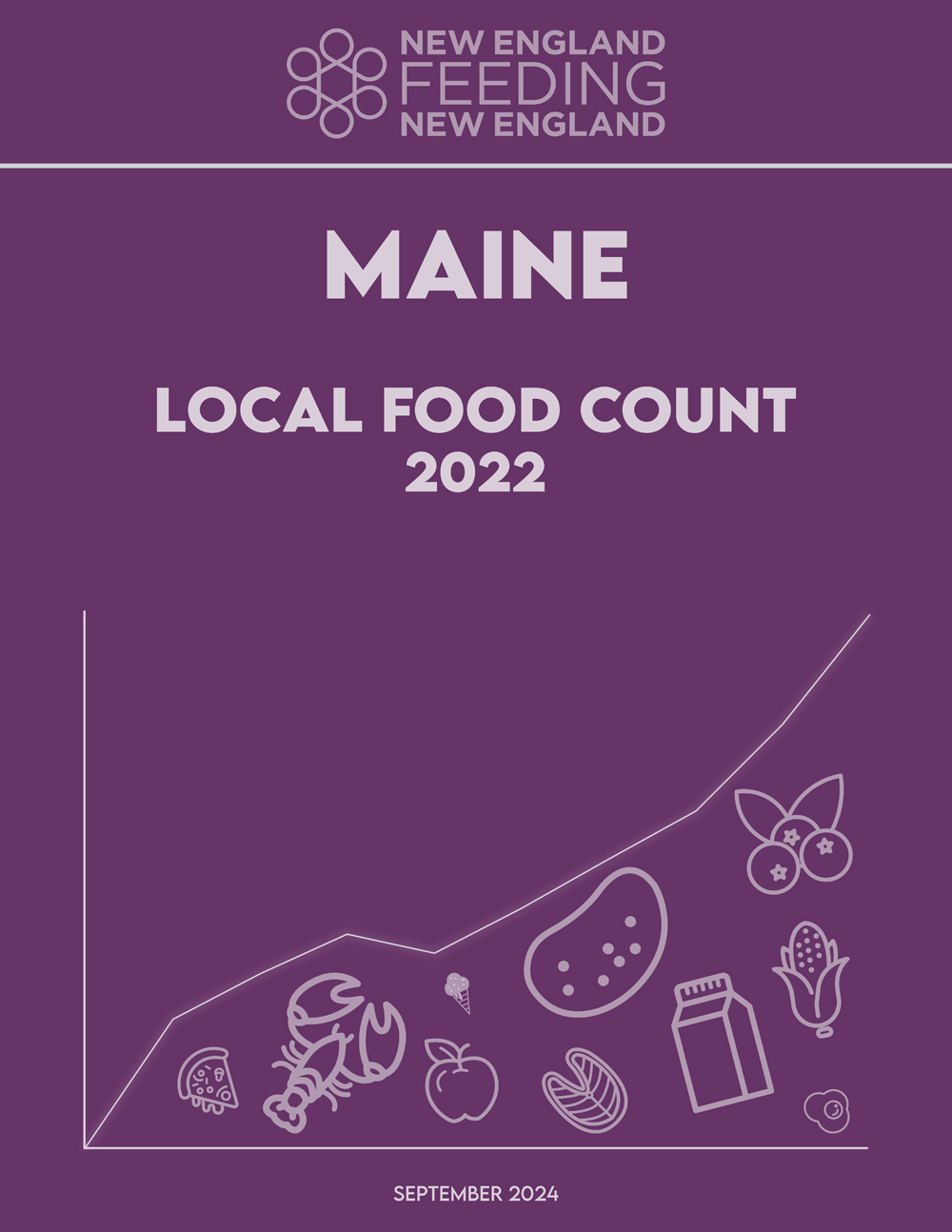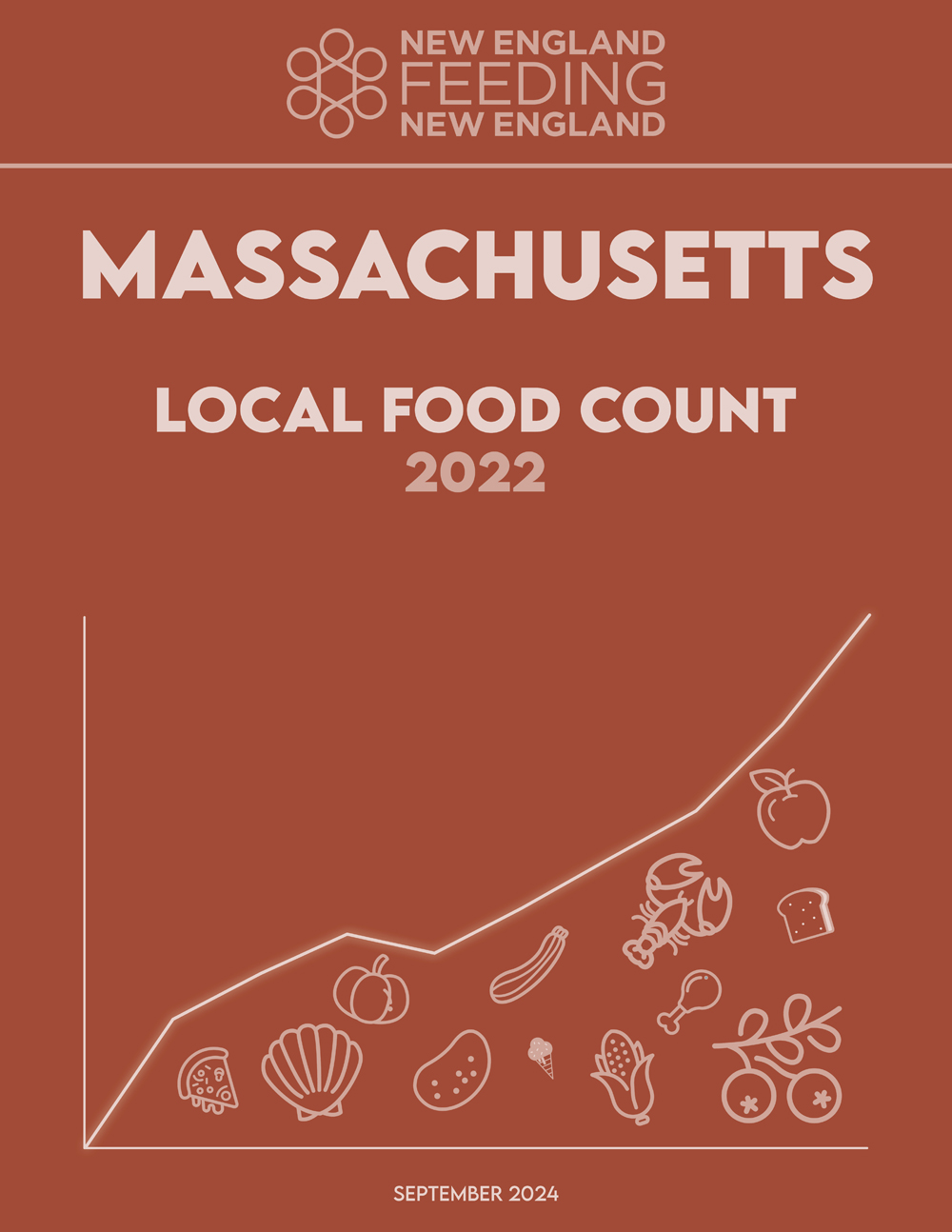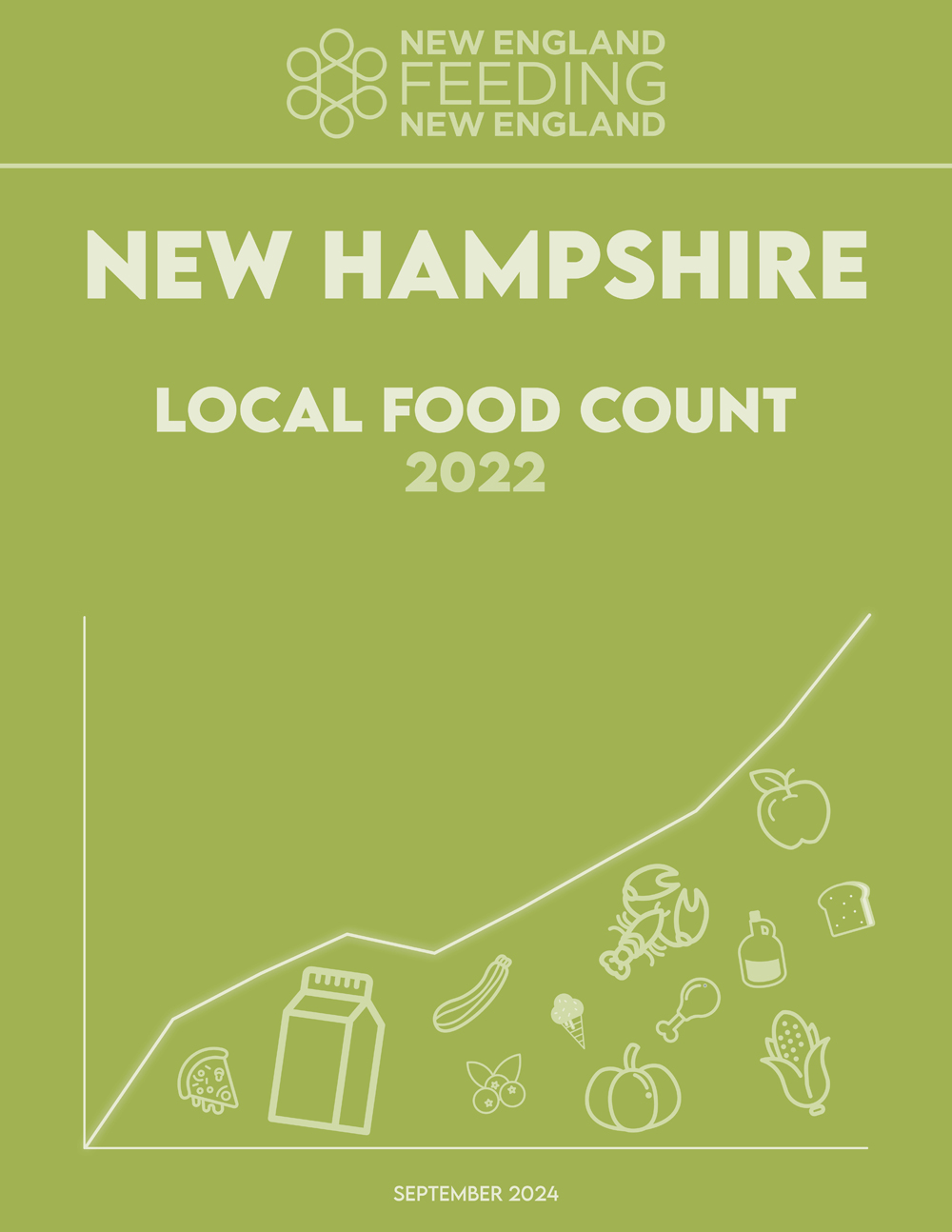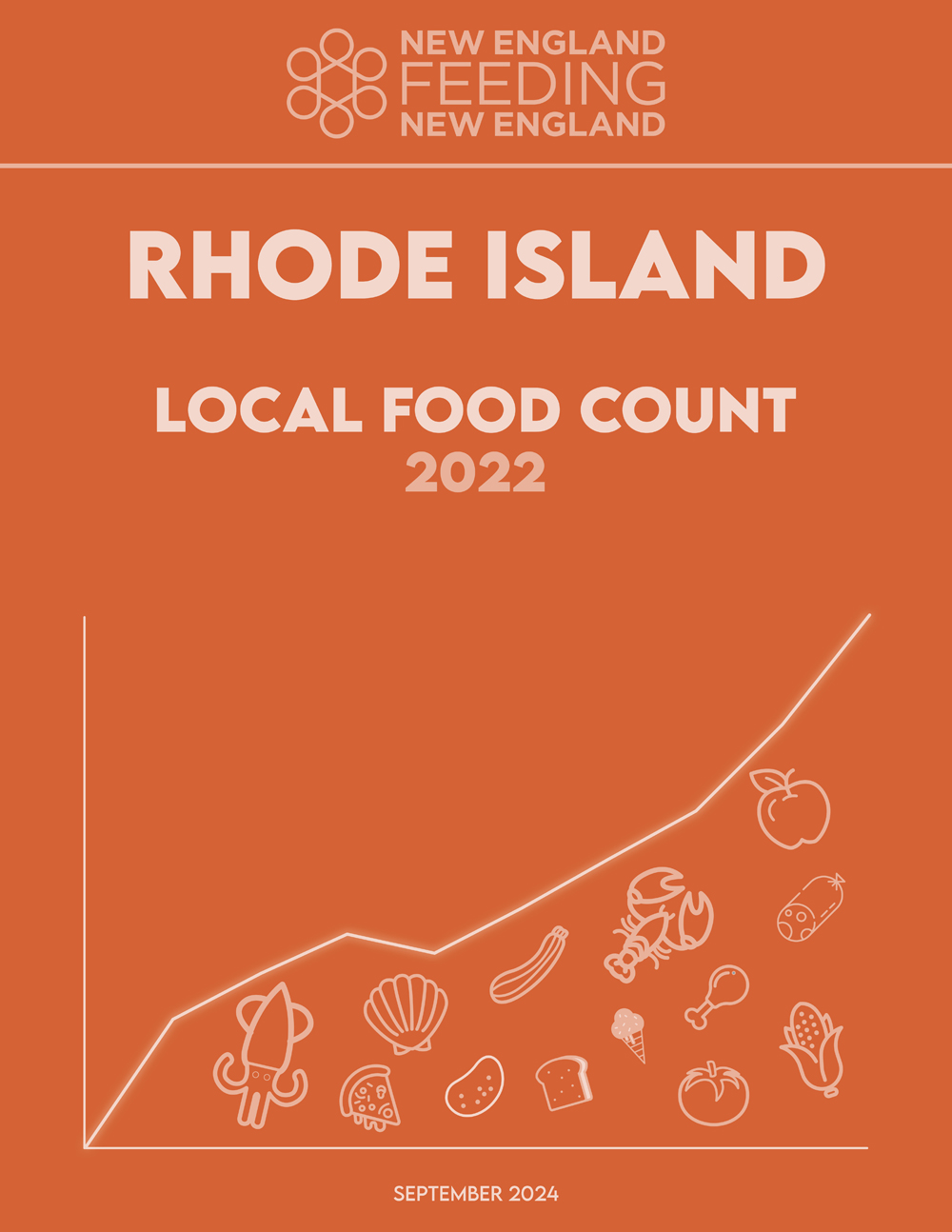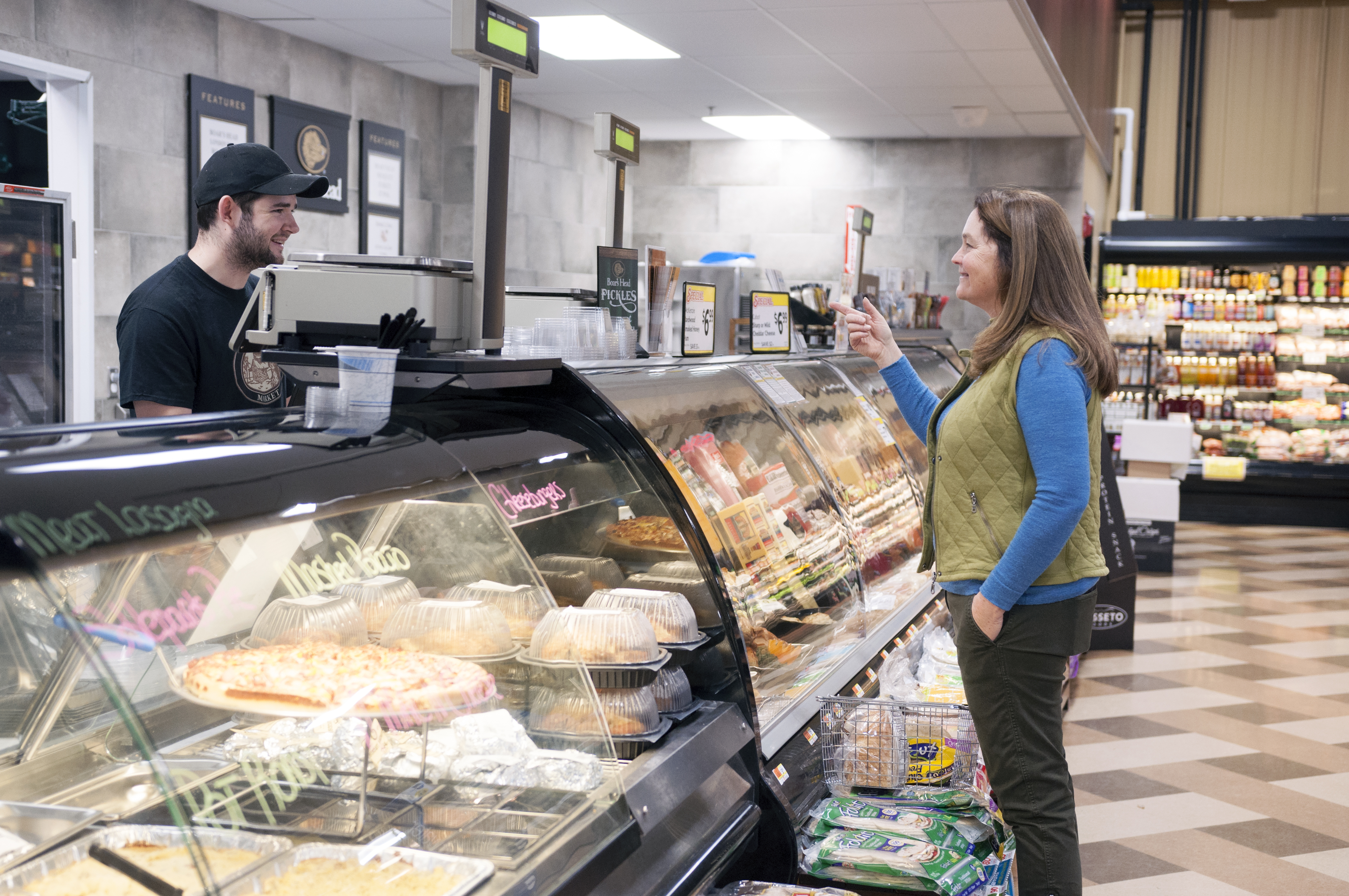
Local Food Counts
How much of the food we grow, raise, catch and produce within the region is actually consumed in New England?
The Local Food Count is a part of New England Feeding New England, a program of the New England Food System Planners Partnership that utilizes a standard and proven methodology of data collection and analysis to account for local food purchased and sold within one calendar year. It serves as the mechanism by which we measure our progress toward the ambitious New England Feeding New England goal, to grow, raise, catch and produce 30% of New England’s food from within New England by 2030.
The Local Food Count methodology standardizes how local food gets counted at the point of wholesale within each New England state. The data is collected from a variety of official sources (e.g., US Census of Agriculture) and directly from food system entities (e.g., distributors, grocers, institutions). Data is also collected for major product categories (e.g., dairy, meat, produce) and by market channel (e.g., grocery/retail, restaurant, institutions, direct sales, etc.).
The Local Food Count methodology was first developed in Vermont in 2011 with an inaugural count taking place across Massachusetts, Connecticut, Rhode Island, New Hampshire and Maine in 2022. The results of the 2022 Local Food Count were released in the Fall of 2023.
The Partnership’s planning and strategic outreach process for the 2026 Local Food Count—which will take place in all six states and collect 2025 sales and purchasing data—is currently underway.
2026 Local Food Count Team
State Teams
Vermont
Lead Data Collector: Annie Harlow, Annie Harlow Consulting
Annie Harlow is an independent retail and operations consultant who helps farms and food businesses grow to meet the complexities of food operations, marketing, and distribution variables to meet market demands. She specializes in designing workshops, seminars, and forums to build relationships among producers, buyers, and distributors for increasing local and regional sales. She has been the lead researcher on several local and sustainable food tracking projects since 2011. Annie oversees The Grocer Project: Retail Collection, through VSJF’s Farm to Plate and the Vermont Agency of Agriculture, Food & Markets. She is tasked with expanding sales for farmers, independent grocery, and coop stores with various types of training: on-farm and in-store support, retail and wholesale sales data collection, and is content creator for a monthly e-newsletter Small Bites. She was instrumental to the Farm to Plate Strategic Plan 2021-2030 Issue Briefs. [Lead Regional Research Analyst]
State Lead: Jake Claro, Farm to Plate
Jake is the Farm to Plate Director as part of the Vermont Sustainable Jobs Fund. He is responsible for providing facilitative leadership and strategic coordination for the Farm to Plate Network’s work to implement Vermont’s food system plan. He manages the Farm to Plate team at VSJF and works to align activity among 350 stakeholders and increase collaboration between private sector, nonprofits, and government to strengthen Vermont’s farm and food economy for the benefit of all Vermonters.
Maine
Lead Data Collector: Tanya Swain, SmallFish Consulting, LLC
Lead Data Collector: Chelsea Marshall, PhD, Consultant
Chelsea Marshall is an independent consultant in Maine, specializing in stakeholder engagement, facilitation and research. Her work focuses on putting human rights into practice at the local level and involving people who are most affected by injustice in the food system in co-designing solutions to systemic challenges. She served on the management committee for Dig-in Bruntsfield, a community-owned greengrocer in Edinburgh, and was a founding board member of Scotland The Bread, a collaborative project to grow better grain and bake better bread. Chelsea has a PhD in Law and Masters in Human Rights Law from Queen’s University Belfast, and a BA in Government from Smith College. [Maine Lead Researcher]
State Leads: Michelle Webb and Brittany Peats, Maine Department of Agriculture, Conservation + Forestry
Connecticut
State Lead: Cyrena Thibodeau, Connecticut Department of Agriculture
State Lead: Martha Page, BearTown Advisors
Martha Page (she/her) is a consultant with Beartown Advisors, LLC where she applies broad system and non-profit expertise for state and regional food system planning, project development and support, organizational development and fund development, grant writing, and social enterprise ventures. Martha has more than three decades of multi-disciplinary management experience in nonprofit, government, and private sector settings. Her experience encompasses planning and operational expertise in public health and in health plan administration, with a strong emphasis on environmental and urban health issues, measurement of results, grants application and management, process improvement, appropriate resourcing, workflows, and technology.
Martha’s educational background includes a Theater degree from the University of Virginia and a Masters in Business Administration and a Masters in Public Policy from the University of Connecticut. She is also a Certified Public Health professional and also certified as a ACRE facilitator through NAFSN.
Martha lives mostly in far western Massachusetts in the lovely Berkshires with her husband and two border collies; she maintains a residence in Hartford, CT, which is in walking distance to the many things that are going on in Connecticut’s capital city.
State Lead: Meg Hourigan, Connecticut Food System Alliance
Meg Hourigan is the Coordinator of theConnecticut Food System Alliance, which works toward a just, sustainable food system by fostering collaboration and alignment among the state’s food system actors and advocating for food policy and systems change informed by food justice. CFSA is working with network members to develop a state food action plan rooted in food justice to transform the Connecticut food system. This plan will serve as a roadmap for equitable food access, diverse ownership of food system assets, and sustainable, viable food production and distribution.
Rhode Island
Lead Data Collector: Minnie Luong, RI Commerce
State Leads: Georgina Sarpong and Alison Macbeth, RI Commerce
New Hampshire
Lead Data Collector: Nicole Cardwell, NH Food Alliance
Nicole is the Director of the NH Food Alliance, a statewide network that engages and connects people dedicated to growing a thriving, fair, and sustainable local food system in the Granite State. The NH Food Alliance connects and amplifies the incredible work of our partners throughout New Hampshire and New England by catalyzing collaboration and collective action between 150+ network partners in alignment with the 2025 New Hampshire Food and Agriculture Strategic Plan which outlines 140 recommendations for tackling a range of challenges facing agriculture stakeholders. NH Food Alliance works together with its network partners to grow and sustain local farms, fisheries, and food businesses, secure healthy food access for all, build climate resilience, and ensure racial equity in our communities and workplaces.
Massachusetts
State Leads: Julianne Stelmaszyk and Bonita Oehlke, Massachusetts Department of Agricultural Resources; Kristina Pechulis, MA Food System Collaborative
Core Team
Scott Richardson, PhD, MBA, Northbound Ventures Consulting, LLC
Scott Richardson is co-founder and Partner of Northbound Ventures Consulting, LLC. He brings a broad range of public health, operations, finance, and strategy experience to his work serving the public, private, and philanthropic sectors. Previously, Scott was the Director of Research and Strategic Initiatives for Project Bread, Massachusetts’ statewide anti-hunger organization, where his responsibilities included identifying, implementing, and measuring the impact and feasibility of new projects to improve access to healthy food for underserved populations. Scott’s research on improving public school nutrition has been documented in several academic journals. Scott holds a PhD in Population Health Sciences with a focus on nutrition from the Harvard T.H. Chan School of Public Health, an MBA from the FW Olin Graduate School of Business at Babson College, a BA from Rutgers College, and a Professional Certificate in Sustainable Food Systems Leadership from the University of Vermont. [Lead Data Analyst]
Scott Sawyer, Vermont Sustainable Jobs Fund
Scott lives in Southern California with his wife and two children. He has worked on Vermont Farm to Plate, San Diego County Food Vision 2030, New Hampshire Food and Agriculture Strategic Plan, Rhode Island Food Strategy 2030, and all things New England Feeding New England.
Holly Fowler, MBA, Northbound Ventures Consulting, LLC
Holly Fowler is co-founder and CEO of Northbound Ventures Consulting, LLC, a small, woman-owned firm based in Montpelier, Vermont and centered around food systems, outdoor recreation, population health, and community economic revitalization. She routinely supports organizations and institutions nationwide to identify and implement strategies that prioritize equitable development. Prior to starting Northbound, Holly served as the Senior Director of Sustainability & Corporate Social Responsibility for Sodexo North America, the world’s second largest provider of institutional food service. There she guided progressive operational and sourcing practices across all markets – corporate, academic, healthcare, leisure, and government. Holly holds a Professional Certificate in Sustainable Food Systems Leadership from the University of Vermont, a Masters in Business Administration from Babson College, and a BA from Bowdoin College. [Massachusetts Lead Researcher]
Ellen Kahler, Vermont Sustainable Jobs Fund
Ellen Kahler is the Executive Director of the Vermont Sustainable Jobs Fund (VSJF) which manages Vermont statewide food system development efforts known as Vermont Farm to Plate. VSJF/VT Farm to Plate is part of the New England State Food System Planners Partnership and provided grants management and administrative support to the New England Feeding New England project. Ellen was actively involved in working with all the researchers associated with this project and in ensuring the project deliverables were achieved. After Sarah Axe left her role at the end of March, 2022, Ellen served as the primary staff working with the researchers to complete the project and publish the results. Ellen helped shape and publish the 2011-2020 Farm to Plate Strategic Plan and the 2021-2030 Vermont Agriculture & Food System Strategic Plan, as well as support the development and work of the statewide Farm to Plate Network. Ellen has served on the Working Lands Enterprise Fund since its inception in 2012, which annually distributes grants to food system businesses and service provider organizations, and was appointed by Governor Phil Scott to serve on the Future of Agriculture Commission in 2021.
Leah Rovner, New England Feeding New England
Leah Rovner is the Project Director for New England Feeding New England (NEFNE). On behalf of the New England State Food System Planners Partnership, she supports collaborative efforts across the six states to expand and fortify the region’s food supply and distribution systems, including the Local Food Counts project plan. Leah worked at America’s Test Kitchen for 9 years running test kitchen operations for all media-related production. She spent several years in specialty retail sales at Whole Foods Market, transitioning into grant writing and strategic consulting for several local food businesses as well as project management for Maine Farm & Sea Cooperative which oversees the USDA Farm to School program in Maine prior to joining NEFNE in early 2023.
Project Partners
Hannah Leighton, MS, Farm to Institution New England
Hannah Leighton is the Director of Research and Evaluation at Farm to Institution New England (FINE), a six-state cross-sector regional network that is transforming the food system by mobilizing the power of New England institutions. In this role, Hannah oversees FINE’s metrics project, manages internal and collaborative research efforts, and leads FINE’s efforts to measure the impact of farm to institution activity across the region. Prior to her work at FINE, Hannah spent several years writing about food, working in hospitality, and farming on vegetable and small-scale livestock farms across the country. She has a Bachelor’s degree in Creative Writing from the New School University and a Master’s degree in Sustainability Science with a concentration in Sustainable Agriculture and Food Systems from the University of Massachusetts, Amherst.
Peter Allison, MA, Farm to Institution New England
Peter Allison is the Executive Director of Farm to Institution New England (FINE). He has worked with FINE since 2011, joining the initial organizing partners to promote a robust farm to institution network in New England. He brings over 30 years of project and program leadership in a wide array of non-profit, government and business settings. He got his start in food systems work by working as a farm to school coordinator at his son’s school in Hartland, Vermont in 2007. He went on to found the Upper Valley Farm to School Network in 2008, to support existing and emerging farm to school programs in the Upper Valley Region of Vermont and New Hampshire. Peter sits on the Network Leadership team of Food Solutions New England, advisory committees of various state-level farm to school programs, and the Valley Food and Farm program of Vital Communities. Prior experience includes serving as Branch Chief for Commercial Waste Reduction for the Mass. Department of Environmental Protection, Senior Consultant for Eco-Logical Solutions, Inc., an innovative environmental consulting firm serving the hospitality industry, and Political Director for the League of Conservation Voters in New Jersey. During non-office time he enjoys an array of outdoor activities including pedaling his bike, skiing the backcountry, and muddling in the garden. Peter has a BA in Philosophy from Drew University and an MA in Urban and Environmental Policy from Tufts University.
FAQ
What is the goal of the 2025 Local Food Count?
Our goal is to capture the percentage (and corresponding dollar value) of local and regional food and beverage products bought or purchased from each state in New England.
How is ‘local food’ being defined for the purposes of this project?
In order to be able to compare local food counts across each of the six New England states, and to be able to aggregate them into a regional food counts estimate, we are defining what is considered to be “local” in the same manner. Because the Vermont Legislature updated how local food is defined in Vermont (and is the only state in the region to have done so), we are adapting the Vermont definition for each of the other five states.
How will you collect data for the 2025 Local Food Count?
There are 3 layers of outreach to gathering 2025 sales/purchasing data for the 2025 Local Food Count.
Step 1: Regional and State-level Data Collectors work with their State Leads to build relationships through targeted outreach to the following entities in 2025 across each New England state:
- Institutions (K-12, colleges/universities, hospitals, assisted living, correctional facilities), Restaurants and Retail-Grocery (Co-ops, Independents)
- Distributors and Food Hubs
Data collectors will use a project-specific worksheet in conversation with regional buyers, category managers, food service directors and other key industry stakeholders to inform them of the 2025 Local Food Count – including why it’s important, understand what tracking mechanisms they may already be using for local and regional products or specific product categories, and to identify how we may work with them to collect their data for calendar year 2025. This data will help us understand the range of institution-level local food purchasing percentages across geographically representative samples by specific market channel and will inform our local percentage estimates for each.
In January 2026, entities will be notified that the worksheet is available to fill out electronically with their 2025 sales or purchase information. The template will be closed in April 2026.
Step 2: Analyze data for New England market channel sales in 2025
NielsenIQ data will be used to estimate 2022 and 2025 food product category sales from key market channels in New England that sell food and beverage (including: grocers, drug/convenience stores, liquor stores and club/supercenters). These recently acquired data sets will also be used to update the 2022 Local Food Count reporting across these same categories [estimated – Fall 2024].
Step 3: Analyze additional federal/state-level data sources
- We will use the most recent US Census of Agriculture (2022) to account for direct-to-consumer sales. The USDA Food Expenditure Data Series also takes these sales into account for our denominator, and we estimate this (comparatively tiny) category numerator at 100% local.
- Estimates for all food sales by state are based on the USDA State Food Expenditure Series, which provides consumer food spending estimates by the value of food eaten at or away from home. Channel-specific estimates are then calculated using percentages available from the National Food Expenditure Series to our state estimates.
Step 4: Analyze, Design and Publish the 2025 Local Food Count reporting
We will update our aggregated data by food category and market channel for 2025 in our Local Food Counts Data Dashboard.
Between April-September 2026, we will review the collected data and reach out with any necessary follow ups.
We will publish 6 individual state reports and 1 Regional report in the Fall of 2026.
How will the Local Food Counts data be used?
Ultimately, this regional food count figure can be used to encourage greater regional food sourcing through various market channels in the region. The 2025 regional percentage will give us a relative sense of how close we are to achieving our 30% goal. By conducting the local food counts in all six states again in 2031 (for 2030 data), we will be able to see whether or not we achieved our 30% goal for 2030.
How can I prepare to provide my 2025 sales/purchasing data to the Local Food Counts team?
Step 1: Download the worksheet that is most applicable to your business or entity type.
Step 2: Fill out the worksheet to test out how much you are buying or selling of local foods in comparison to foods from outside New England.
Step 3: Contact our Director, Leah Rovner (leah@nefoodsystemplanners.org), to be directed to the right Data Collection Team that can further support you in identifying this information and set up you up to submit your purchasing or sales data from 2025 (once it is available in January 2026).
How will the Local Food Counts Team ensure the data is kept secure?
All information collected shall be kept confidential and will be analyzed solely by the data analysis team, with no identifying raw data shared with any other parties. The Local Food Counts project data collection process is being sponsored by the New England Food System Planners Partnership, a collaboration of seven-state level food system organizations and the six Departments of Agriculture. Non-Disclosure Agreements will be available for businesses interested in a formal commitment of confidentiality.
